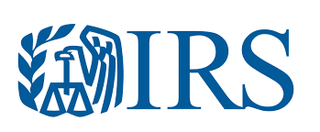Intel Loses Tax Case Appeal With Billions at Stake for Other Tech Giants

Intel subsidiary Altera, now Intel’s Programmable Solutions Group, on Friday lost a court case about a tax regulation that was also closely watched by other technology companies, like EA, eBay, Microsoft and Google, with billions of dollars of tax revenue at stake. As reported by The Wall Street Journal, the federal appeals court however sided with the Internal Revenue Service (IRS).
The Altera-IRS case revolved around share-based compensation, a popular way for companies to reward employees. The IRS had written a regulation that required companies to deduct more of it as an business expense abroad instead of deducting it in the U.S, which was favorable. This was especially relevant before the late 2017 tax law that reduced the tax rate (and hence narrowed the gap compared to foreign tax rates), since companies benefited from deducting the share-based compensation expenses against the higher U.S. tax rate.
On Friday, the Ninth Circuit Court of Appeals ruled 2-1 for the IRS over Altera. Chief Judge Sidney Thomas wrote: "We disagree with the Tax Court that the 2003 regulations are arbitrary and capricious. While the rulemaking process was less than ideal, the [law] does not require perfection."
The result of the case is the same as last year. "We conclude that the regulations withstand scrutiny under general administrative law principles, and we therefore reverse the decision of the Tax Court," Sidney Thomas wrote at the time. The court heard the case again because one of the judges had died before the ruling was issued.
Intel did not want to comment, but last year Intel had expressed disappointment in the ruling.
The Altera case involved taxes on a relatively small $80 million of revenue, but a positive outcome of the case could have had a much larger impact for other companies, who were hence watching the case closely. Tech giants such as Google's parent Alphabet, EA, eBay, Microsoft and Google have cited the outcome of the case as a risk factor in their financial statements. For instance, Alphabet said it in 2016 that it could gain at least $3.5 billion if Altera prevailed.
Stay on the Cutting Edge
Join the experts who read Tom's Hardware for the inside track on enthusiast PC tech news — and have for over 25 years. We'll send breaking news and in-depth reviews of CPUs, GPUs, AI, maker hardware and more straight to your inbox.
Most Popular


